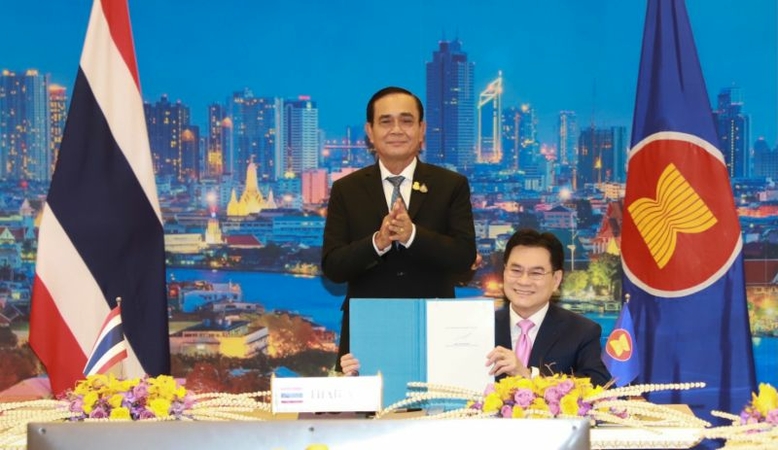
Prime Minister General Prayut Chan-o-cha participated on Sunday in the 4th Regional Comprehensive Economic Partnership Summit (RCEP), which was one of the meetings in addition to the 37th Asean Summit through teleconference.
The PM said he was very pleased that the meeting could conclude the outcome of the negotiations together and witness the signing of the RCEP agreement, which is the world's largest free trade agreement.
He said that members face many challenges due to differences in the level of economic development, the sensitivity of each country, and the latest crisis from the situation of the coronavirus outbreak.
The union of the members will provide the RCEP region with a favourable environment and attract global trade and investment, the PM said. This gives member countries the ability and flexibility to cope with future economic challenges. It will also be a tool to drive the world economy towards more free trade. As a result, our region and our people would continue to benefit equally and sustainably, Prayut said.
The PM attended the RCEP signing ceremony with representatives from 15 countries. For Thailand, Deputy Prime Minister and Minister of Commerce Jurin Laksanawisit signed the agreement.
Jurin said today was a very important part of history, as there would be an agreement between 15 countries made up of 10 Asean countries and five from the Asia Pacific -- China, Japan, South Korea, Australia and New Zealand. He said he hoped India would join the agreement in future.
Jurin added that the Thai private and public sectors would need to accelerate preparations and adapt to the world's largest new investment trade and agreement, including studying regulations that become relevant.
After the signing on Sunday, each country has to follow its own process of ratifying the deal.
It is expected to come into effect in the middle of next year. In order to come into effect, there must be six Asean countries and three other countries ratifying for the agreement to be enforced.
RCEP has left its doors open for India, which took part in the early deliberations but decided to stay out. The members are hopeful that India can join the agreement in the future, making the grouping account for one-third of world GDP and population.


